Marvin Richard James Humes was born on the 18 March 1985. He is a TV and radio presenter who rose to fame 10 years ago when appearing on The X Factor in the boy band JLS. Today he lives in Essex with his wife, the TV presenter Rochelle, and their two children.
Family’s everything to me. I’d like to think I’ve had a very lucky upbringing, growing up mixed race, my Dad being black, my Mum being white. In the 70s that would have been really tough for them. It’s something to be really proud of I think that they’ve stood the test of time and they’re still very much in love now, very much still together.
Marvin’s roots are Jamaican on his father’s side and British on his mum’s and he is proud of this mixed-race heritage.
I know so little because I’ve never searched before, and I think that now, 33 years old, I’ve got my own family, and it would just be good for everybody to know really where we’re from and what it took for all of us to be here in the UK and living a good life.
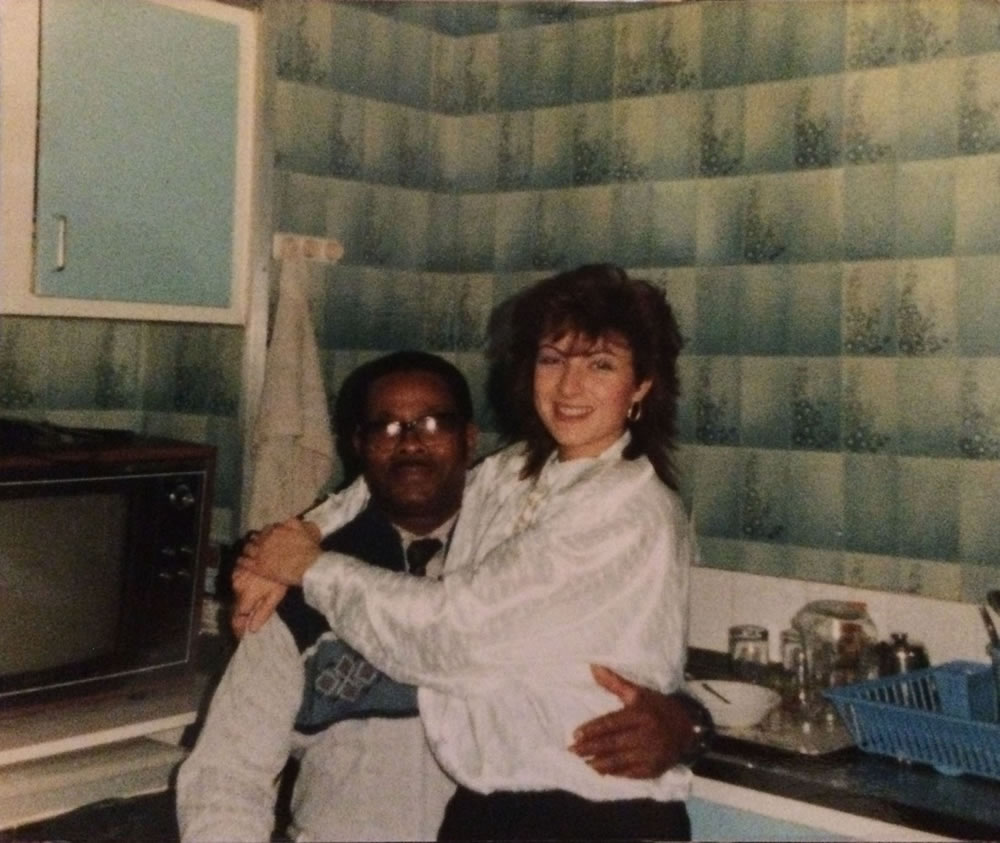
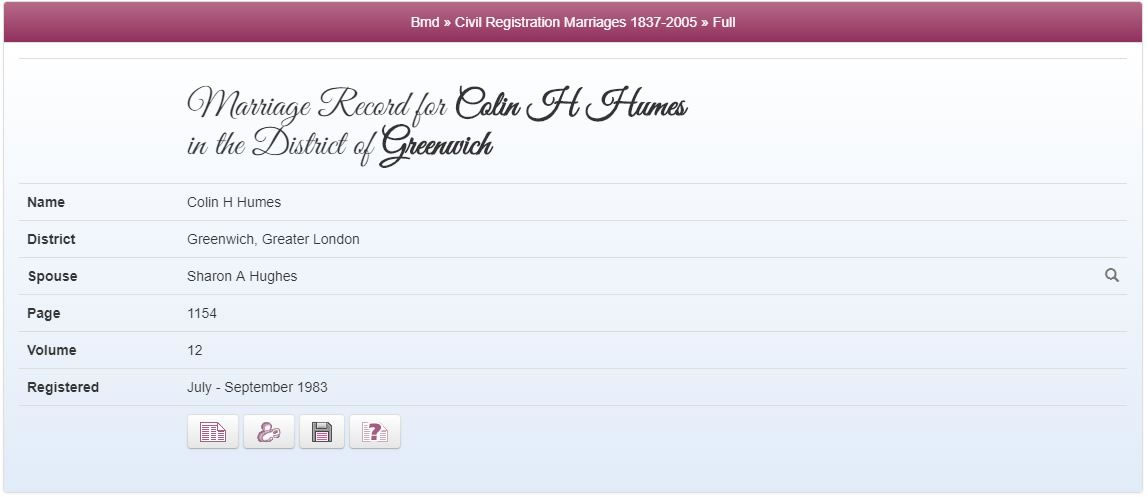
To start his Who Do You Think You Are? investigation Marvin takes a trip to see his parents, Sharon and Colin whose marriage can be discovered in the Civil Registration Marriage records on TheGenealogist . To help Marvin with his family story his paternal uncles Peter and Dalbert are also invited to the gathering so that they could contribute what they know of the family history.
I think potentially we should start on my Dad’s side because I feel like I know a bit more about that side of the family.
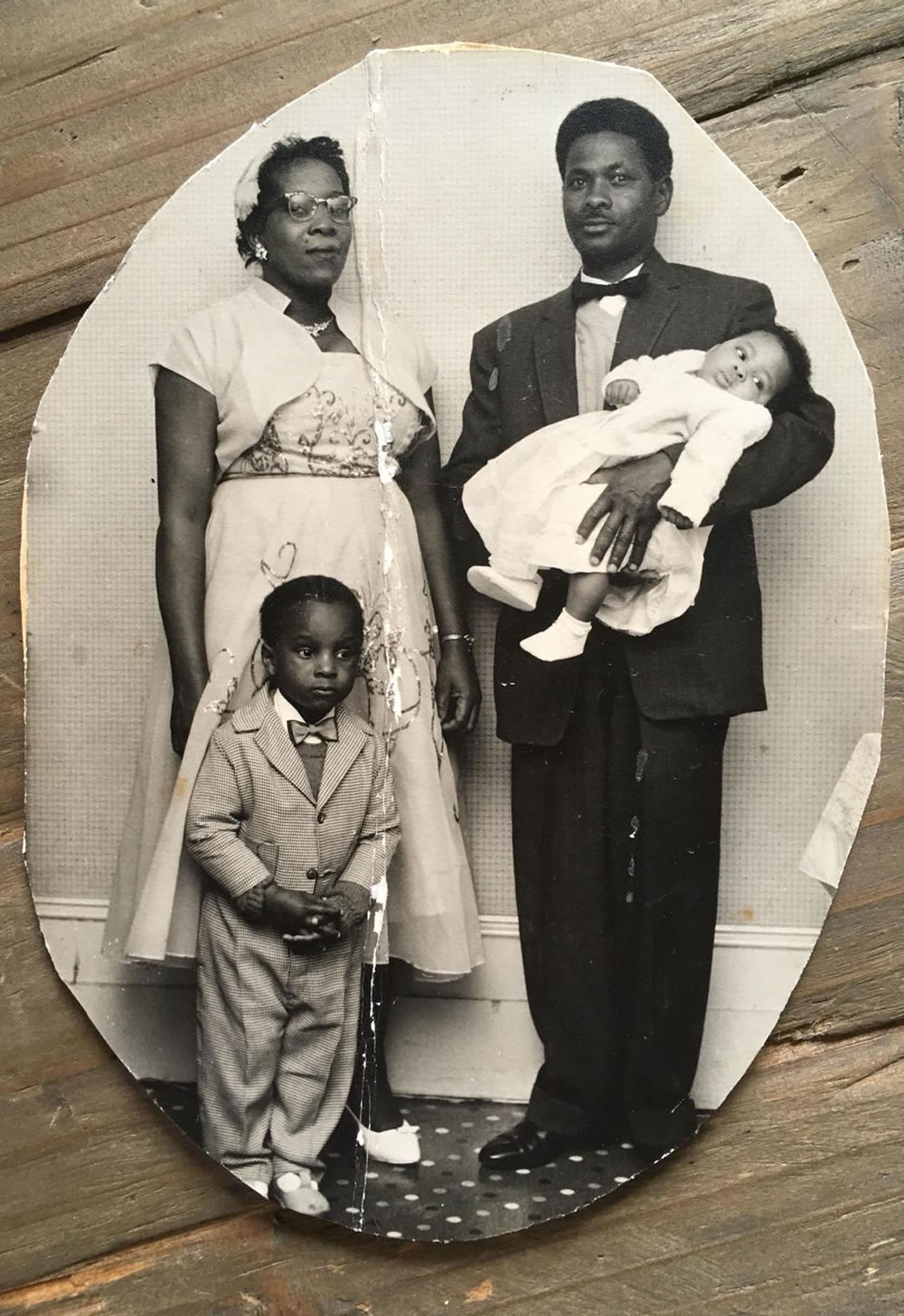
As the family gathered in the living room, Marvin’s dad Colin begins to relate what he knows about his own parents Robert (who was known as Randall) and Ruby. Marvin hears that his grandfather had left his home in Jamaica in 1955 and his grandmother followed on in 1958. Randall had been working on a Jamaican farm before he left the island for Britain. Another bit of interesting information that Marvin learns from the get-together was that Randall had never known his own father Joseph Humes, Marvin’s great grandfather. Joseph, it would seem, had gained a reputation for being a bit wild and as a womaniser who had left his family when Randall was just a young boy. Randall had then gone to live with his mother’s brother John Williams as Randall’s mother, Mabel, wasn’t well.
I’m gonna go to Jamaica. Where do you think I should start?
To see if he could discover why Randall wasn’t brought up by his own parents Marvin travels to Kingston, the capital of Jamaica. From here he sets off into the countryside of the island where at Crawl Farm he meets up with his grandfather’s cousin, Dockary Williams, who is the son of John Williams.
Last time I came to Jamaica was ten years ago, and it was a whole different experience, I was very much a tourist then. I feel like this is the real Jamaica 100%.
Dockary thinks back to his time growing up with Marvin’s grandfather and where both boys helped out on the farm picking coffee and bananas. Marvin is keen to find out about Mabel and Joseph Humes and asks what happened between them? Dockary is able to explain that Joseph had begun an affair with another woman and the outcome was that they had a child together. Dockary tells Marvin that as a result of Joseph’s affair Mabel was admitted to Bellevue, a mental hospital in Kingston, and that she never truly recovered.
I never knew any of that history, finding out that my great grandmother ended up in a mental hospital. I never knew that. I don’t think my parents knew that.
On returning to Kingston, Marvin then meets with psychiatrist Wendell Abel to find out more about his great grandmother Mabel. Her death certificate shows that she died aged only 52 years old on the 18th July 1940 in the mental hospital at Bellevue. The cause of her death was recorded as encephalitis, a disease of the brain tissue that can be due to either inflammation of the brain or an infection.
What do you think in your opinion was ultimately wrong with Mabel?
The psychiatrist is only able to speculate as with limited records he can’t be sure, but he points to stress leading to mental illness. The infidelity and broken relationship could certainly have lead to her having developed her condition.
Marvin is able to get an idea of the hospital when he is shown a sketch made of the ward. At the time that his great grandmother was a patient it would have been referred to as a ‘lunatic asylum’ and the treatment in this era would have been harsh and primitive often involving the restraint of individuals with straitjackets or in padded cells and seclusion rooms.
It’s like this hospital is a place to die. Members of my family have had problems over the years and I know how much love my family give each other, how supportive we are of each other, and it seems like Mabel never had that, which is really, really sad.
Marvin is keen to find out more about Mabel’s father, his great, great grandfather Solomon Williams. By going online to do his own research Marvin brings up a baptism register that reveals that Solomon Williams had been born in March 1862. The place of birth was called Comfort Hall and the parents were John Brown Williams and his wife Caroline.
Access Over a Billion Records
Try a four-month Diamond subscription and we’ll apply a lifetime discount making it just £44.95 (standard price £64.95). You’ll gain access to all of our exclusive record collections and unique search tools (Along with Censuses, BMDs, Wills and more), providing you with the best resources online to discover your family history story.
We’ll also give you a free 12-month subscription to Discover Your Ancestors online magazine (worth £24.99), so you can read more great Family History research articles like this!
…they would be my great, great, great grandparents. Wow.
Researching deeper into this line brings up a marriage certificate for the wedding between his great, great grandfather Solomon Williams and Mary McQueen also at Comfort Hall but in the year 1887.
I keep hearing about this place called Comfort Hall. Do you think Comfort Hall is maybe the farm or maybe the plantation where Solomon Williams would have lived?
Wanting to find the answer leads Marvin to meet historian Dian McCallum at Mico College in Kingston. She shows him a map of Jamaica from 1874 that shows that Marvin’s great, great, great grandfather, John Brown Williams, not only lived at Comfort hall but that he was actually the owner of 20 acres of land situated there. Armed with this new lead Marvin goes looking for Comfort Hall along with his Uncle Dockary. In the countryside they come across some gates.
Uncle, these are the gates of Comfort Hall?
Dockary explains that today Comfort Hall has increased to cover 80 acres and it is still in the ownership of the Williams family. Knowing this encourages Marvin to find out just how it was that his ancestor, John Brown Williams, had been able to acquire this land and what he would have had to have gone through to get it.
Looking for answers Marvin travels a couple of miles from Comfort Hall to meet historian Suzanne Francis Brown at St John’s Church. The historian is able to show Marvin an 1839 baptismal record for John Brown Williams. This reveals that the parents were John Williams and Emily Williams so divulging the next generation back. As well as listing the names of Marvin’s four times great grandparents the document also tells him that John Brown Williams had been baptised in the very church that he was sitting in at that moment for the filming of the genealogy programme.
How common would it have been for a black man like John Williams to own a piece of land like Comfort Hall?
The history of slave labour in Jamaica is that for more than 150 years the British had been transporting Africans to toil on Jamaican plantations. In that time the total numbers of slaves reached over 700,000. When the end of slavery occured in 1834 many of Jamaica’s black population bought land. But Suzanne then explains to Marvin that during the period when slavery was in place that not all black people were slaves. Another document that Suzanne has unearthed from 1838 delivers a shock as Marvin reads:
John Williams. Owner of Comfort Hall. Dated 28th September 1835. Awarded £53 …and 3 shillings…for two persons
Marvin is astonished to discover that, notwithstanding that his ancestor was a black man, John Williams was in fact a slave master at Comfort Hall.
Never did it cross my mind that my four times great grandfather would have been a slave owner. I didn’t even know that black people had slaves.
Marvin, however, finds out that his Jamaican heritage is far more complex than he had believed. The historian Swithin Wilmot met Marvin in the programme to explain more about the history of his five times great grandparents, Edward Brown and Mary Lake. While there is not a lot of information to be found on Mary Lake, Swithin tells Marvin what he had found out about Edward Brown. Edward had been born in 1787 and was a slave who belonged to the Henriques family in Jamaica. Swithin points Marvin to look at an 1818 Manumission record. This reveals that Edward Brown’s life changed substantially when a mystery free woman of colour, whose name was Sarah Davis, paid the sum of £160 to purchase Edward Brown’s freedom.
I’ve been through so many ups and downs over the last few days. Finding out that my three times great grandparents weren’t slaves, then finding out that their parents, my four times great grandparents actually owned slaves, and then their parents were slaves.
I feel so much more connected to Jamaica now. This has just been a whole other experience that I’ll never, ever forget. But as I promised my Mum, back home in Essex, we need to find out about her side of the family now.
Marvin’s maternal line
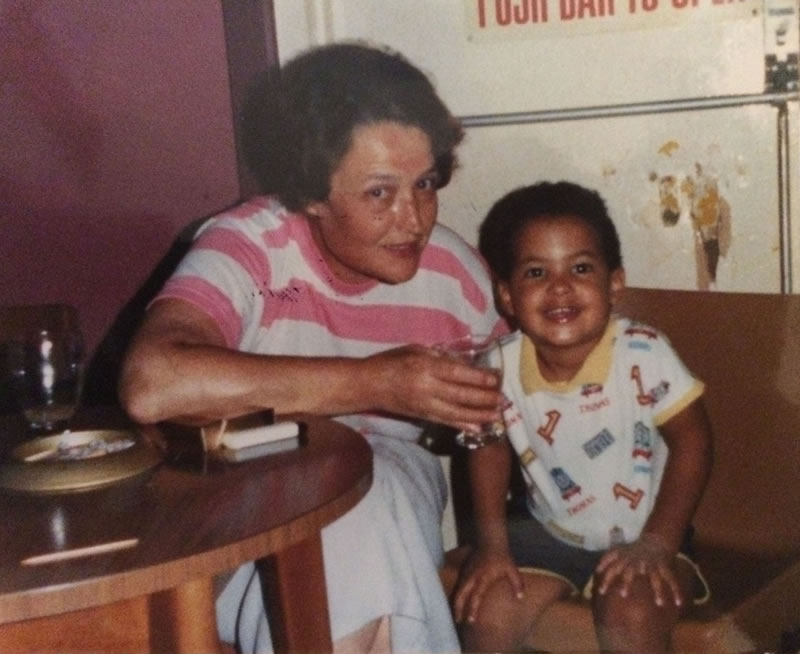
Returning to Essex Marvin meets up with his mother Sharon in their local pub and she has a photograph of Marvin as a young boy with her own mother to show him. Sharon never knew her own grandmother, Caroline Buckingham neé McKenzie, because she had died a year before Sharon’s birth. As for her grandfather, Frederick Buckingham, the family called him ‘Old Man Buckingham’ as he was really grumpy.
Access Over a Billion Records
Subscribe to our newsletter, filled with more captivating articles, expert tips, and special offers.
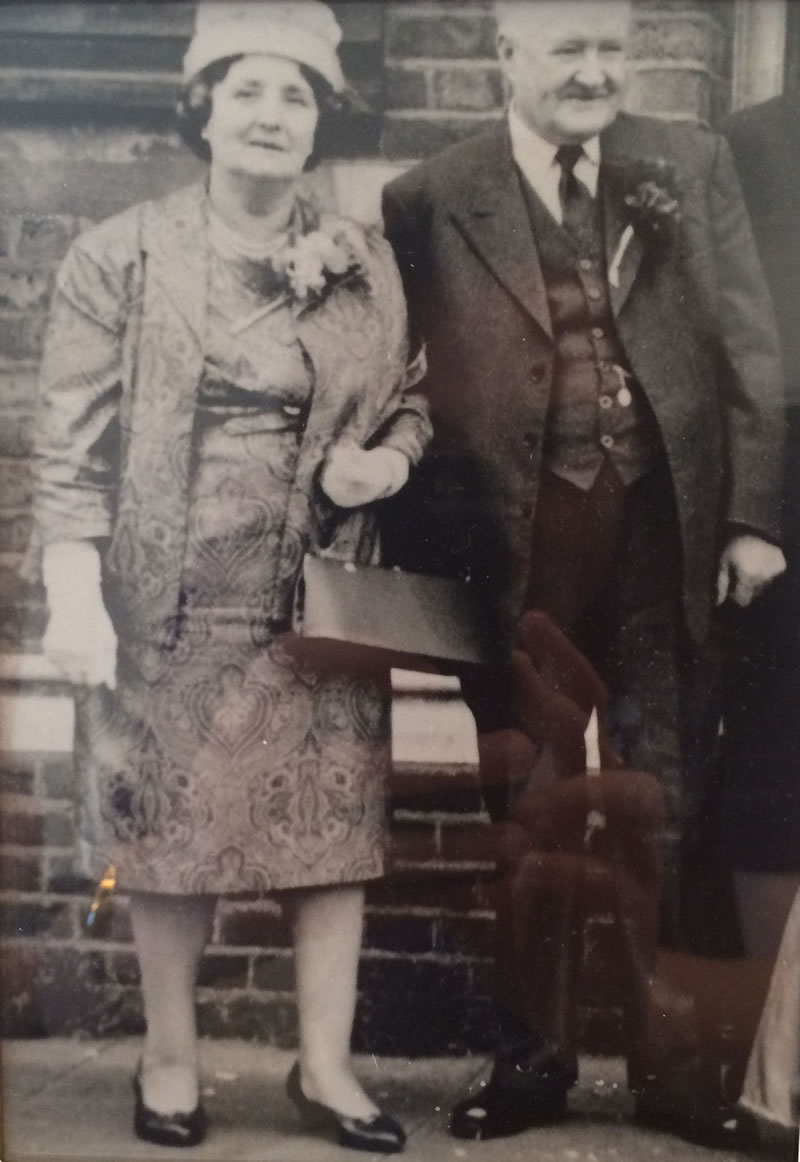
An online search for him reveals some Admission and Discharge documents from the Chelsea Workhouse, dated from the 8th and 25th September. Sharon and Marvin discus how they associate workhouses with Oliver Twist.
The workhouse records start to shed some light on Fred Buckingham’s early life. It is revealed that by the age of two he had already been into a workhouse twice. Next Marvin and Sharon discover that Fred was later discharged to the Metropolitan Infirmary in Margate at the age of six.
It’s horrible… So I guess I’m taking a trip to Margate?
Marvin’s next meeting is with historian Claire Jones at the Margate Royal Sea Bathing Hospital where he finds out more about why his great grandfather had come to the town. It emerges that the Margate Metropolitan Infirmary functioned as a hospital for poor workhouse children in order that they could be away from the overcrowded and polluted environment of the big city. Unfortunately, for Marvin, the exact infirmary that Fred had been sent to no longer exists anymore. For this reason Claire has arranged for them to see a similar institution, the Royal Sea Bathing Hospital in Margate. Claire explains to Marvin that both the Metropolitan Infirmary and the Sea Bathing Hospital treated a form of tuberculosis called scrofula this affliction affects the lymph nodes and the sea was considered by doctors to be therapeutic for this condition.
I can only imagine, it would have been really lonely for Frederick.
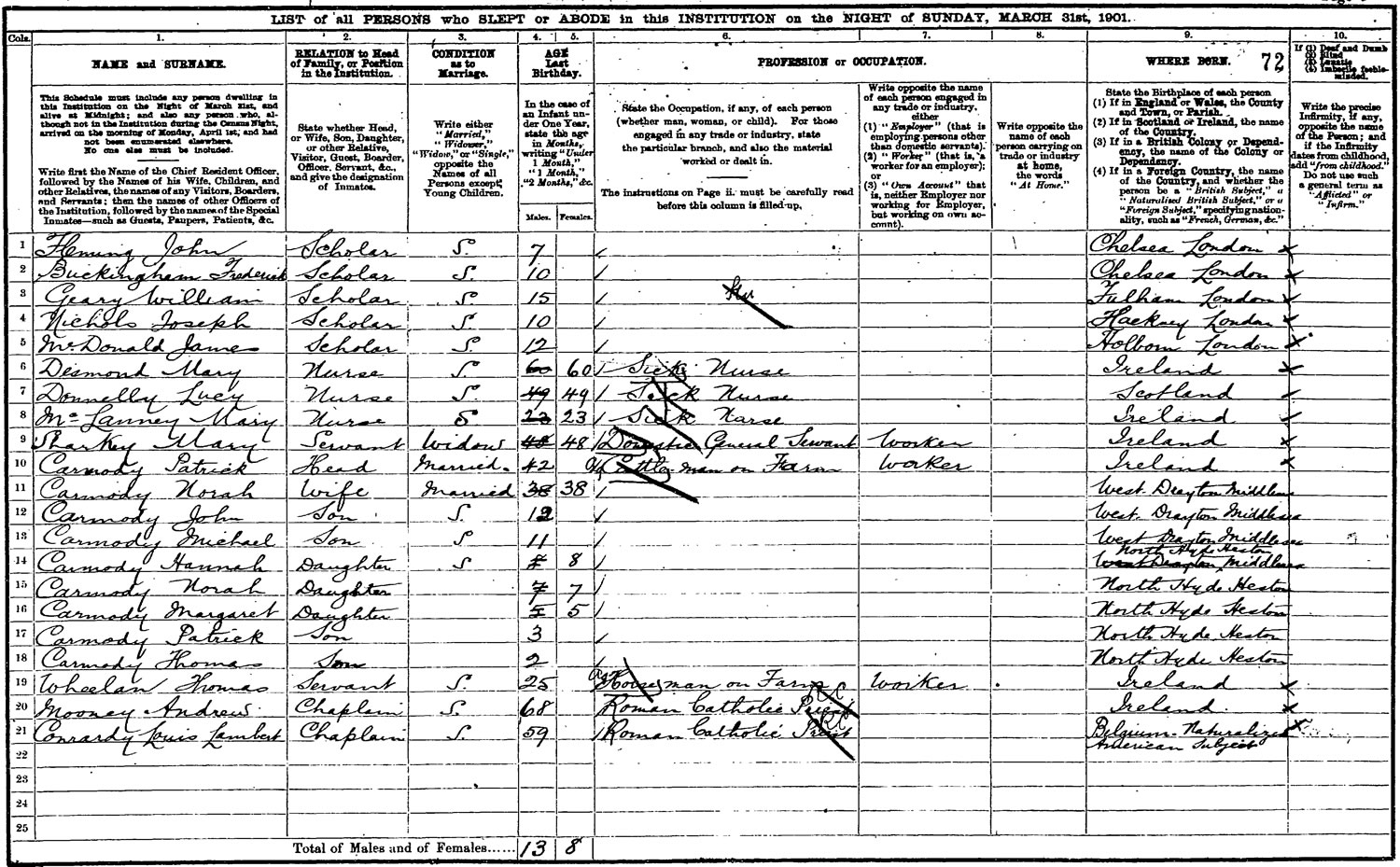
Fred’s life remained difficult when at the age of nine he was deserted by his family and sent to North Hyde School, a school for orphans. The 1901 census on TheGenealogist picks him up aged 10 in the institution’s list. Despite that his great grandfather had a rocky childhood, it may have been that Margate gave Fred a taste for the sea. Claire produces his Royal Navy Service Papers from 1910-1914 for Marvin to see. Documents also reveal that Fred didn’t always manage to stay on the right side of the law.
Oh. Wow. ‘Metropolitan Police District’. There he is. ‘Frederick Buckingham. Drunk and Disorderly’. Oh wow. ‘Assaulting Mary Anne Buckingham’. Which was his Mum?
A newspaper article from the West London Observer fills out a few more details about the case. Marvin reads in the article that the judge chastens Fred for assaulting the woman who brought him up.
‘There was lack of upbringing. His family deserted him, so that’s wrong, that’s wrong information,‘ Marvin says.
He’s had a very up and down life from being a toddler. It’s no childhood really. The lack of love clearly that he never received. You know, he probably thought his parents completely forgot about him. So no doubt he’s going to be a bit of a troubled soul. It’s kind of understandable that he seems he’s got a bit of pain and torment. So yeah, hopefully things get better for him along the way.
After 1914 Fred disappears from the records for a time, but Claire explains that he turns up again some years later and by this time he is in the Merchant Navy.
Marvin then visited Chatham Historic Dockyard where he met with expert Harry Bennett. Harry shows Marvin his great grandfather’s Merchant Navy service papers and these reveal that Fred sailed on a number of different ships between 1928 through to 1940. He served at sea as a fireman working under the harsh conditions prevalent in ship engine rooms at the time.
Harry explains to Marvin that Fred’s life at sea continued into the Second World War. In 1940 he was serving onboard the King Orry which was taking part in the Dunkirk evacuation of the British Expeditionary Force from France and Belgium.
No way. I can’t believe that my Mum knows nothing about any of this, this is her granddad, my great grandfather. It’s crazy.
To continue tracing his great grandfather’s life, Marvin travels to Dunkirk where he meets naval historian Phil Weir who has found more information on the King Orry. After it had picked up 1131 soldiers in Dunkirk the ship suffered a hit from the German Artillery. Marvin receives a shock when he sees a news clipping that details how Fred jumped overboard when the bomb hit the deck but was picked out of the water still smiling.
It’s an amazing story. One thing’s for sure is that my great grandfather was a survivor…he’s a hero man. My Mum’s going to be absolutely blown away by this.
Sources:
Press Information from IJPR on behalf of the programme makers, Wall to Wall Media
Extra research and record images from TheGenealogist.co.uk
Photos from BBC Images






